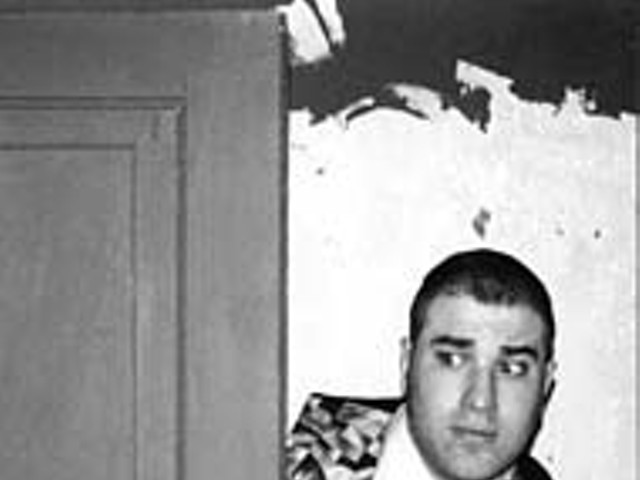When Wall Street opened in 1987, it was seen as a scathing condemnation of Reagan-era avarice and greed. This bombastic morality tale (it was an Oliver Stone movie, after all) appeared in theaters not long after the insider trading scandal broke and America became intimately acquainted with Wall Street millionaires who made acquiring a fortune their priority, damn the legalities and anyone who might get hurt in the process.
There’s a scene in Boiler Room, writer-director Ben Younger’s portrayal of the next generation of stock market sharks, where a new recruit to the flush firm of J.T. Marlin meets his new co-workers for an after-work bull session. He arrives at a brand-new, sparsely furnished Long Island mansion to find his colleagues gathered around a big-screen television. They are raptly watching a scene from Wall Street, where hot-shot trader Gordon Gekko (Michael Douglas) is working the phones, juggling money to his advantage.
They take turns standing next to the TV and reciting the lines along with Gekko, down to the most arcane broker lingo. They see nothing reprehensible in his motto: "Greed is good." It’s their mantra as well.
"These guys are always looking toward popular media to find a direction," says Younger of their hero worship, "because they’re living in an alternate reality, a dream world. That’s actually one of the more disturbing things. These brokers have literally created their own microcosm; they’ve created their own rules."
The real-life phenomenon of "boiler rooms" or "chop shops" is Reagan’s trickle-down theory at work. Whereas the junk bond kings of the 1980s took the traditional route to positions at established Wall Street brokerage houses, the new young guns have mined an alternate fast track: working for Long Island-based firms which sell stocks via the telemarketing technique of hard-sell phone calls.
Ben Younger’s first peek into this shadow world came when he was recruited by a boiler room and attended an orientation meeting. The trainer guaranteed prospective employees they’d get their first million within two years. He didn’t take the job, but Younger knew he had found the subject for his first film.
With a political science degree from the City University of New York (followed by jobs as a policy analyst and campaign manager), he was overqualified for boiler room life. Most recruits, Younger explains, are barely out of high school. Anyone with a college education or a Series Seven (stock broker certification) is automatically disqualified.
"They don’t want anyone with any preconceived notions," he says, "certainly not any formal training. They want to teach them how to do one thing and do it very well: Be a predator – go out and sell."
Younger began an intense yearlong process of interviewing the young men who made their fast fortunes in boiler rooms, most of whom were from lower-middle-class Italian families and grew up in New York’s outer boroughs.
"If there was a sociological structure within the boiler room," he explains, "it struck me very much as a frat house. Like the guys in a frat house, even outside of school, they remain in that circle – they travel as a pack. They don’t associate with guys outside of their business. They never make themselves vulnerable to anyone else."
Which means they rarely question the means to their end, that is, how they can get so rich so quickly. Conveniently checking their morals at the door, they pursue a business that is, at best, quasi-legal: selling stocks in bogus companies to clients eager to get in on the bull market. The traders make inflated commissions, then insiders sell all at once, reaping a large profit. The stock, which the brokers have pitched as a sure thing, subsequently crashes. Everyone wins except the buyer.
"What’s unique about this scam," Younger says, "is that the players involved are not aware that it’s a scam. Usually, the people who are in it, they know who’s the mark – they know what the game is. In this scam, the officers of the company know it’s a scam. But every guy making a cold call, every guy selling a new issue, they don’t know that it’s garbage, even though the last 20 stocks have tanked. The officer’s feeling in the chop shop is, ‘Sure we can tell (the brokers) this is garbage, but they will sell better if they themselves believe in it.’"
Now 27, Ben Younger sees boiler rooms as reflecting a disturbing ideology embraced by his generation. Wealth is not just prized, but expected, and the shorter the shortcut to it, the better.
"This youth culture has redefined capitalism," he asserts, "and one of the things that I find interesting is that up until five years ago, people had a conception of what it took to become successful: You go through a process – you follow the protocol. The Internet has turned that upside down – the stock market has turned that upside down. People become millionaires overnight. Now every guy who’s spent years getting his M.D., Ph.D. or M.B.A., taking out student loans, is thinking, ‘What was I doing? I didn’t have to do any of this. I missed the boat.’ That’s a really scary thought."





